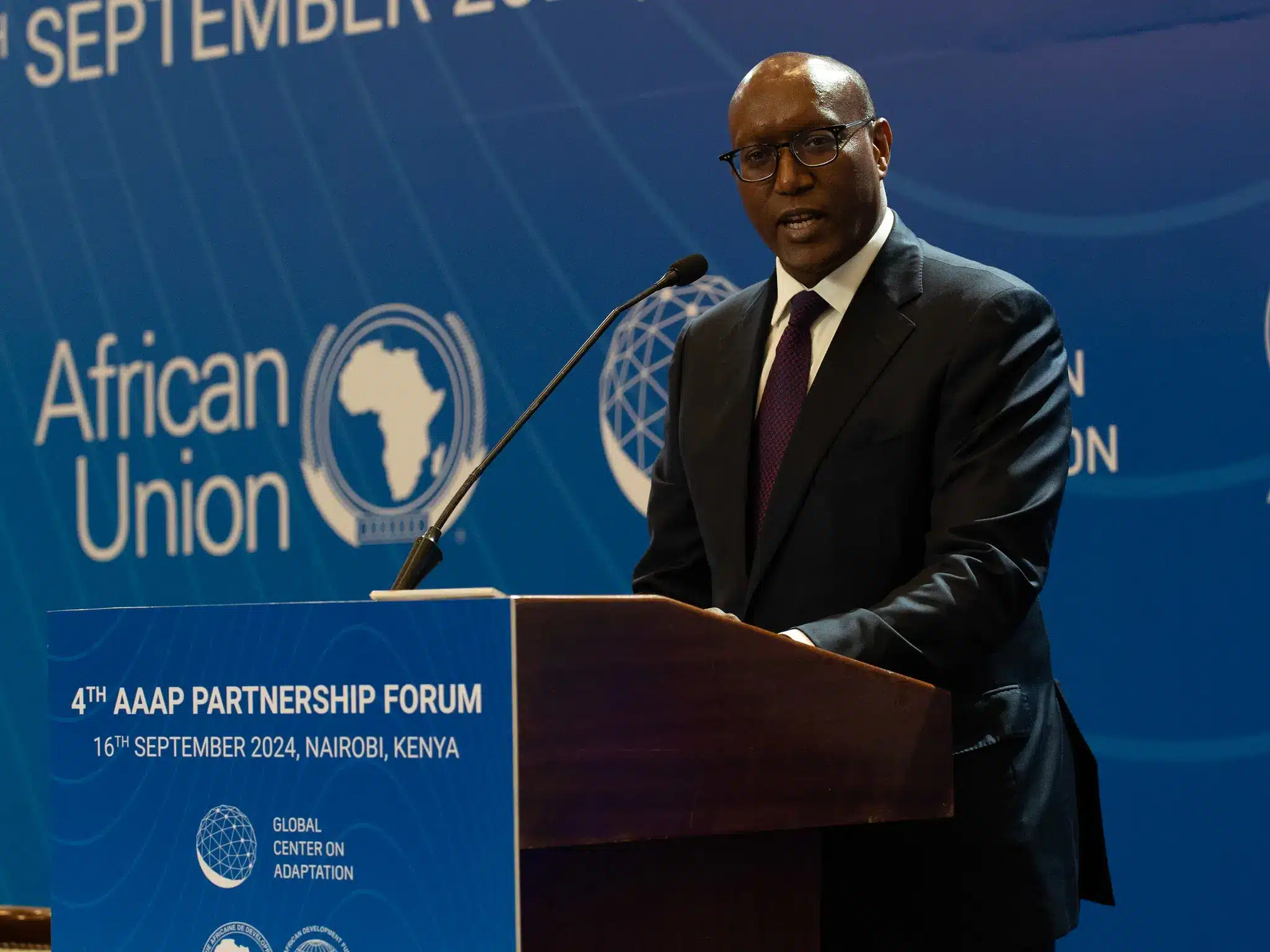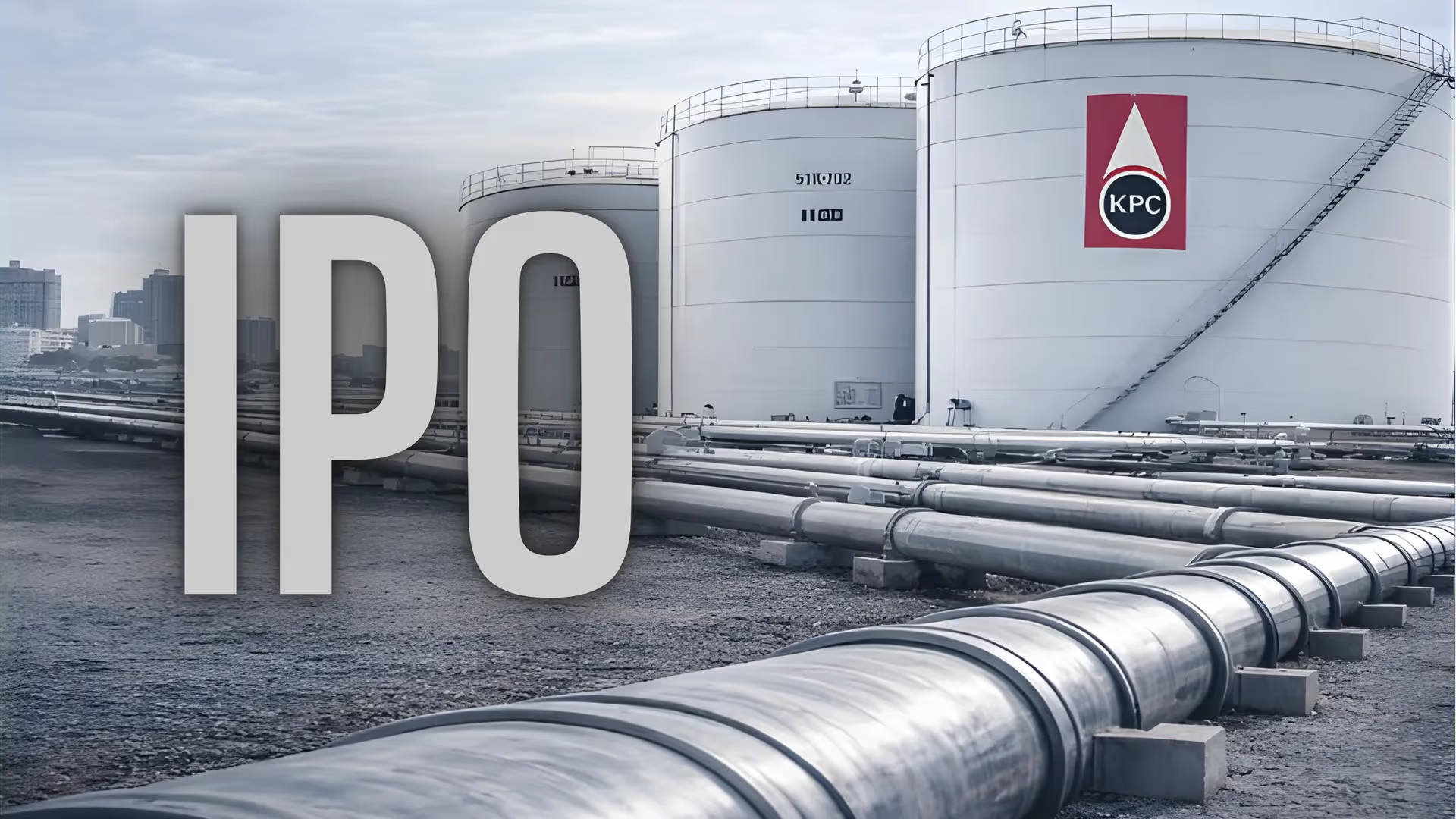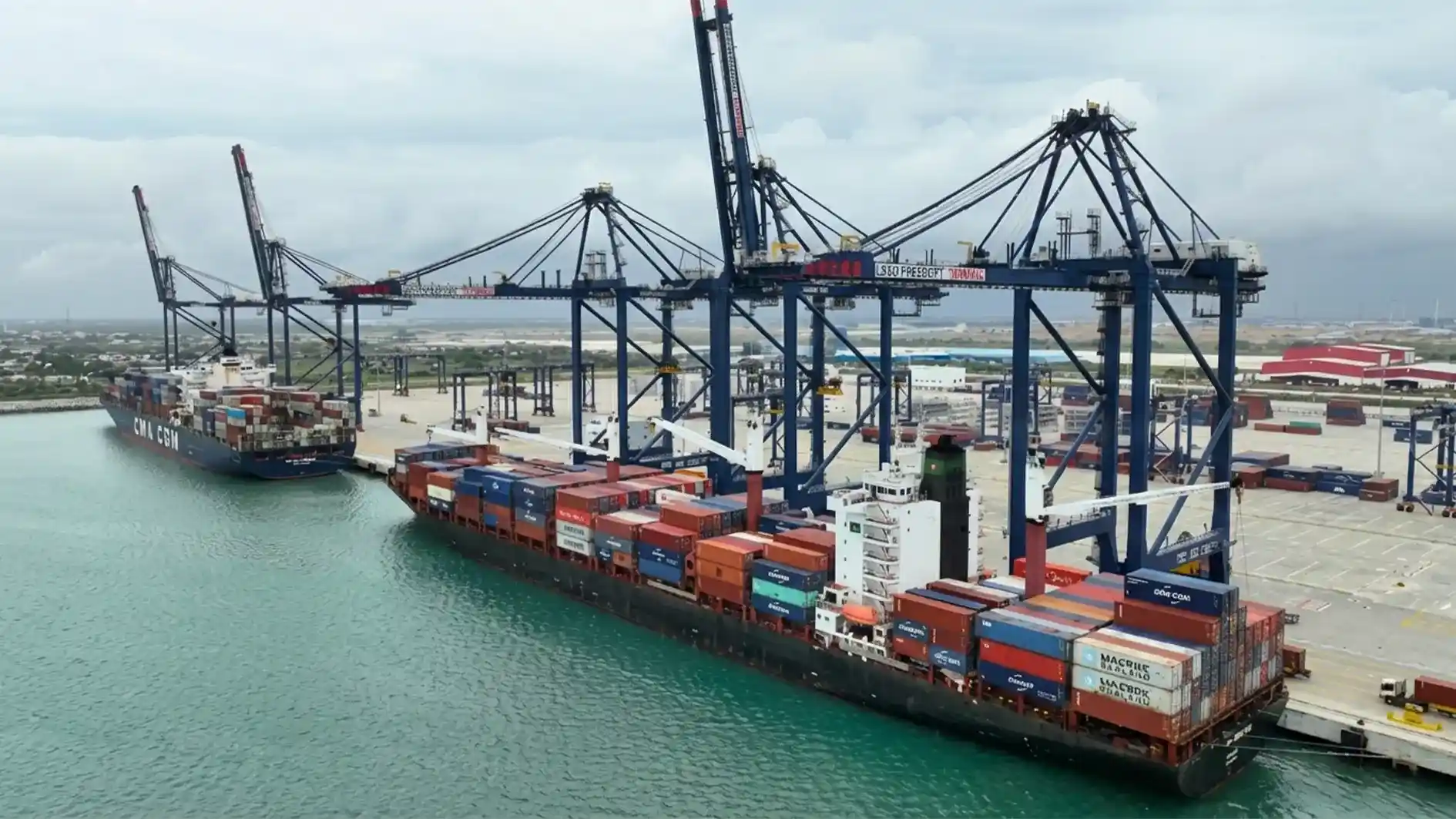In a world increasingly grappling with the impacts of climate change, Africa is among the most vulnerable regions. To address this urgent challenge, a major climate adaptation initiative is underway through the Africa Adaptation Acceleration Program (AAAP). In its first 36 months of operation, the AAAP has demonstrated significant progress in fostering climate resilience across the continent, mainstreaming over $10 billion in development investments from various international financial institutions (IFIs). As a result, more than 63 million people across 37 African countries have benefitted from these efforts, with many more expected as the program expands.
The results were celebrated during the 4th AAAP Partnership Forum, held in Nairobi, Kenya, on 16th September 2024. Organized by the Global Center on Adaptation (GCA) in collaboration with the African Development Bank (AfDB), the forum brought together ministers, experts, and practitioners from across Africa and beyond. The forum highlighted the program’s accomplishments and discussed future goals, focusing on scaling up climate adaptation efforts to help Africa’s most vulnerable communities.
Key Achievements and Investments
Since its launch in 2021 and operational inception in 2022, the Africa Adaptation Acceleration Program (AAAP) has been instrumental in creating nearly one million jobs, particularly in agriculture and renewable energy sectors. The initiative’s reach spans several countries, including Kenya, Ethiopia, Nigeria, and Ghana. It has proven crucial in increasing resilience to climate shocks in vulnerable areas, helping to safeguard livelihoods, food security, and infrastructure. The program is supported by the Bill & Melinda Gates Foundation, Denmark, Germany, France, the Netherlands, Norway, and the United Kingdom.
According to Professor Patrick V. Verkooijen, CEO of the GCA, Africa is at a crossroads, facing an out-of-control climate crisis. In his keynote speech at the forum, he emphasized the need to accelerate adaptation efforts:
“Africa is at a crossroads, staring down the barrel of an out-of-control climate crisis for the world’s most vulnerable continent. The AAAP serves as Africa’s ‘Adaptation Transmission Belt,’ helping to bridge the gap between growing climate risks and the urgent need for adaptive solutions.”
The AAAP’s initiatives have already touched the lives of over 16 million farmers and 60 million individuals, with goals to continue scaling up. By the end of 2025, the program aims to have shaped $25 billion in climate-resilient investments.
Climate-Smart Agriculture and Resilient Infrastructure
Climate-smart agriculture has been a central pillar of the AAAP’s strategy. The program integrates adaptation measures into development projects focusing on food security, water resources, sanitation, and resilient infrastructure. According to Dr. Kevin Kariuki, Vice-President for Power, Energy, Climate, and Green Growth at the AfDB, AAAP has made substantial progress in enhancing food security and climate resilience, especially in regions most affected by climate risks, such as the Sahel, Horn of Africa, and the Zambezi Basin:
“Through 17 of the 68 projects, AAAP has significantly enhanced food security and climate resilience, particularly for vulnerable communities, ensuring that 9.4 million people across 16 countries are better equipped to face climate risks.”
Additionally, the program’s focus on resilient infrastructure has involved integrating adaptation measures into critical sectors such as agriculture, water, sanitation, and urban development. These projects have proven instrumental in creating sustainable pathways to development and resilience for Africa’s rapidly growing population.
A Focus on Locally Led Adaptation
The AAAP is not just about high-level investments and projects; it also focuses on locally led initiatives. During the forum, Gladys Atieno Wanga, Governor of Homa Bay County in Kenya, shared the importance of community-driven adaptation plans. With GCA’s support, local governments are working closely with vulnerable communities to develop People’s Adaptation Plans, particularly in informal settlements. These plans help map out how climate change impacts water and sanitation sectors, ensuring that local responses are tailored to the unique challenges faced by specific regions.
The GCA’s Global Hub on Locally Led Adaptation plays a critical role in fostering these initiatives, offering knowledge and best practices to guide adaptation efforts. By grounding adaptation strategies in local contexts, the AAAP helps ensure that the most vulnerable communities receive the support they need to build resilience from the ground up.
Support from International Partners
The success of the AAAP is made possible by strong international partnerships, which were also emphasized at the forum. Anne Beathe Tvinnereim, Norway’s Minister for Development, highlighted Norway’s ongoing commitment to the program, particularly in supporting climate-resilient agriculture and food security:
“Norway is pleased to continue our support for the AAAP. African countries can achieve higher national self-sufficiency by building more climate-robust, small-scale food production. Investing in local value chains and markets will create new jobs, strengthen economic growth, and significantly reduce world hunger.”
France’s Ambassador to Kenya, Arnaud Suquet, echoed these sentiments, reiterating that adaptation to climate change is a priority that serves the interests of all nations:
“Globally, we are partners of GCA and we’ll continue to be a partner. It’s not a one-off. There are a lot of priorities worldwide, but I think adaptation to climate change is in the interest of everybody.”
Private Sector Engagement and Innovation
The forum also highlighted the importance of private sector engagement in accelerating climate adaptation. Start-ups and entrepreneurs play a crucial role in developing innovative solutions to climate challenges. During the forum, three Kenyan start-ups—FLIPS Org, RoISUM by Houtech Company Limited, and Apen Softwares—were awarded grants under the Climate Resilience and Adaptation Accelerator Program. Each start-up received €42,000 to develop digital solutions addressing physical climate risks and enhancing resilience in low-income communities. These start-ups exemplify the AAAP’s commitment to fostering local innovation and integrating climate resilience into national development strategies.
Youth and Climate-Smart Initiatives
Youth engagement is another significant focus of the AAAP’s efforts. One notable initiative involves the training of young entrepreneurs from Mukuru, Nairobi, in Black Soldier Fly farming, a climate-smart practice that addresses sustainable waste management. This project, supported by GCA, DanChurchAid, and the African Development Bank, empowers young people to reduce landfill waste, mitigate flash flooding, and contribute to urban agriculture through innovative methods.
The AAAP’s focus on youth is part of a broader strategy to ensure that Africa’s future leaders are equipped with the knowledge and skills needed to drive climate adaptation forward. By investing in young entrepreneurs and innovators, the program helps build a pipeline of talent that will continue to contribute to Africa’s climate resilience in the years to come.
Financial Mobilization and the Road to COP29
The AAAP’s financial mobilization efforts are critical to its success. The program has already mobilized billions of dollars from international financial institutions and private sector partners, with an ambitious goal of securing $25 billion by the end of 2025. As Africa prepares for the 29th UN Global Climate Summit (COP29), the outcomes of the AAAP’s 4th Partnership Forum are pivotal in shaping the continent’s climate adaptation delivery efforts.
Panel discussions during the forum emphasized the importance of unlocking private climate finance, particularly in scaling up investments in resilient infrastructure, agriculture, and energy. Participants agreed that achieving the $25 billion target will require continued collaboration between governments, the private sector, and international partners. Moreover, there was a call for greater inclusion of local communities and stakeholders in the decision-making processes to ensure that adaptation efforts are equitable and sustainable.
Conclusion
The 4th AAAP Partnership Forum in Nairobi marked a significant milestone in Africa’s journey toward climate resilience. With over $10 billion in investments already mainstreamed into climate adaptation projects, the AAAP is delivering tangible results for millions of Africans. As the program continues to scale up, it will play a crucial role in helping Africa adapt to the growing risks of climate change, while fostering sustainable development and economic growth.
photo source: Google
By: Montel Kamau
Serrari Financial Analyst
18th September, 2024
Article, Financial and News Disclaimer
The Value of a Financial Advisor
While this article offers valuable insights, it is essential to recognize that personal finance can be highly complex and unique to each individual. A financial advisor provides professional expertise and personalized guidance to help you make well-informed decisions tailored to your specific circumstances and goals.
Beyond offering knowledge, a financial advisor serves as a trusted partner to help you stay disciplined, avoid common pitfalls, and remain focused on your long-term objectives. Their perspective and experience can complement your own efforts, enhancing your financial well-being and ensuring a more confident approach to managing your finances.
Disclaimer: This article is for informational purposes only and does not constitute financial advice. Readers are encouraged to consult a licensed financial advisor to obtain guidance specific to their financial situation.
Article and News Disclaimer
The information provided on www.serrarigroup.com is for general informational purposes only. While we strive to keep the information up to date and accurate, we make no representations or warranties of any kind, express or implied, about the completeness, accuracy, reliability, suitability, or availability with respect to the website or the information, products, services, or related graphics contained on the website for any purpose. Any reliance you place on such information is therefore strictly at your own risk.
www.serrarigroup.com is not responsible for any errors or omissions, or for the results obtained from the use of this information. All information on the website is provided on an as-is basis, with no guarantee of completeness, accuracy, timeliness, or of the results obtained from the use of this information, and without warranty of any kind, express or implied, including but not limited to warranties of performance, merchantability, and fitness for a particular purpose.
In no event will www.serrarigroup.com be liable to you or anyone else for any decision made or action taken in reliance on the information provided on the website or for any consequential, special, or similar damages, even if advised of the possibility of such damages.
The articles, news, and information presented on www.serrarigroup.com reflect the opinions of the respective authors and contributors and do not necessarily represent the views of the website or its management. Any views or opinions expressed are solely those of the individual authors and do not represent the website's views or opinions as a whole.
The content on www.serrarigroup.com may include links to external websites, which are provided for convenience and informational purposes only. We have no control over the nature, content, and availability of those sites. The inclusion of any links does not necessarily imply a recommendation or endorsement of the views expressed within them.
Every effort is made to keep the website up and running smoothly. However, www.serrarigroup.com takes no responsibility for, and will not be liable for, the website being temporarily unavailable due to technical issues beyond our control.
Please note that laws, regulations, and information can change rapidly, and we advise you to conduct further research and seek professional advice when necessary.
By using www.serrarigroup.com, you agree to this disclaimer and its terms. If you do not agree with this disclaimer, please do not use the website.
www.serrarigroup.com, reserves the right to update, modify, or remove any part of this disclaimer without prior notice. It is your responsibility to review this disclaimer periodically for changes.
Serrari Group 2025
















